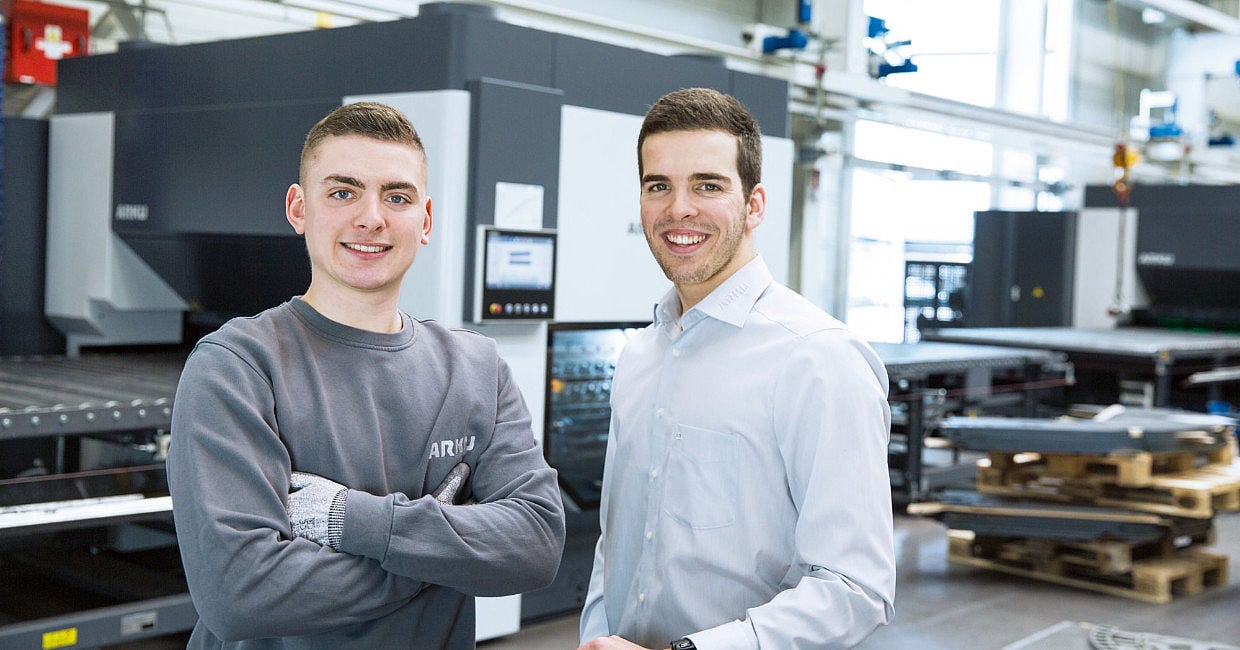However, there is a solution: out-of-flat sheet metal can still be processed if leveled beforehand. If you don‘t have your own precision leveler, you can rely on toll processing as a service. In this case, a specialized company takes over the leveling work of the sheet metal: good toll processors react quickly and flexibly. They are prepared for ad hoc operations and immediately understand the production requirements for the sheet metal. The necessary tolerances, associated effort, and costs are coordinated by the toll processing center. They will also support you or take care of the logistics themselves. Whether transportation or packaging – you simply have your out-of-flat materials picked up. Shortly after, the toll processor will return the material in a condition that allows for efficient processing. Transport damage or additional contamination must be excluded by your subcontractor.
Even if the sheet metal has no obvious defects, leveling on a toll processing basis is still worthwhile. Bows and unevenness cause distortions in the materials. As a result, it is quite possible that components can only be joined together poorly or not at all. Furthermore, residual stresses still occur in the sheet metal. They are not visible to the naked eye and cannot be precisely measured either, yet they are capable of causing the materials to warp after cutting. In extreme cases it is even possible that during laser cutting, the residual stresses in the sheet metal cause the cut part to shoot up and damage the laser head.
There are good arguments in favor of leveling sheet metal: they increase dimensional stability after punching or laser cutting. This not only makes joining processes safer, but also increases the quality of the final product. Leveled sheets also place less wear on tools, which extends their service life. Furthermore, there are fewer malfunctions during downstream processing. Finally, when punching, it is possible to increase the number of strokes of the punching machine with leveled sheets – and thus its productivity.
Low sheet metal quality can result in longer setup times at welding stations or cause the accumulation of angularity errors. It is especially crucial to consider leveling, when welded assemblies have to be reworked because they are out of tolerance.
/REZ/lohnrichten-teile-vorher-nachher.png?width=1200&length=1200&name=lohnrichten-teile-vorher-nachher.png)
Toll processing with ARKU: Simple and fast – around the clock.
/REZ/lohnrichten-vorher-nachher-teile.png?width=1200&length=1200&name=lohnrichten-vorher-nachher-teile.png)
Whether small or large sheet metal parts – test our toll processing capabilities as an economical service.

You can tell by just looking at these perforated sheets how the leveling process pays off.
Leveling on a toll processing basis also has the advantage of being able to test the materials quickly and easily. Selected batches can be leveled and processed without having to buy a precision leveler. For meaningful results, the processing steps during production should be precisely documented before and during the test.
Even if you have decided to level, you do not have to invest in your own precision leveler. This only pays off when a certain number of parts/sheets need to be leveled. As long as leveling is more economical as a toll processing service, you should stick with it.



